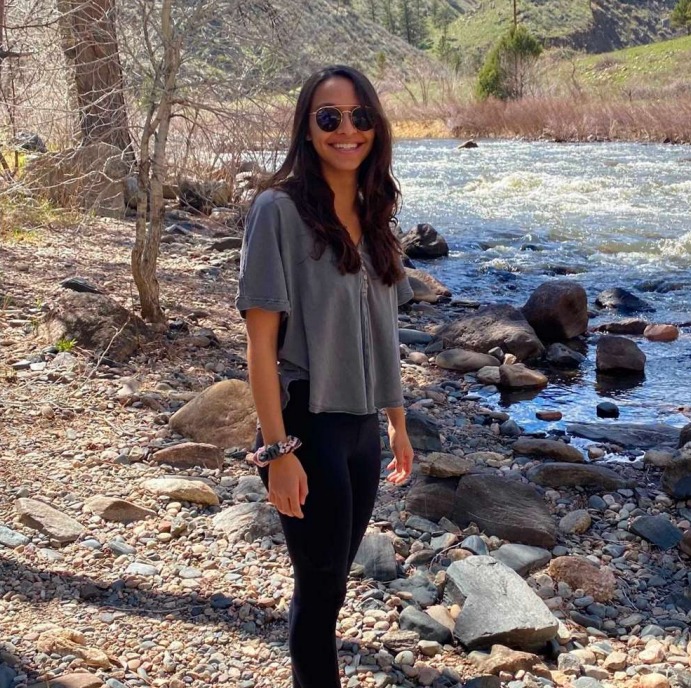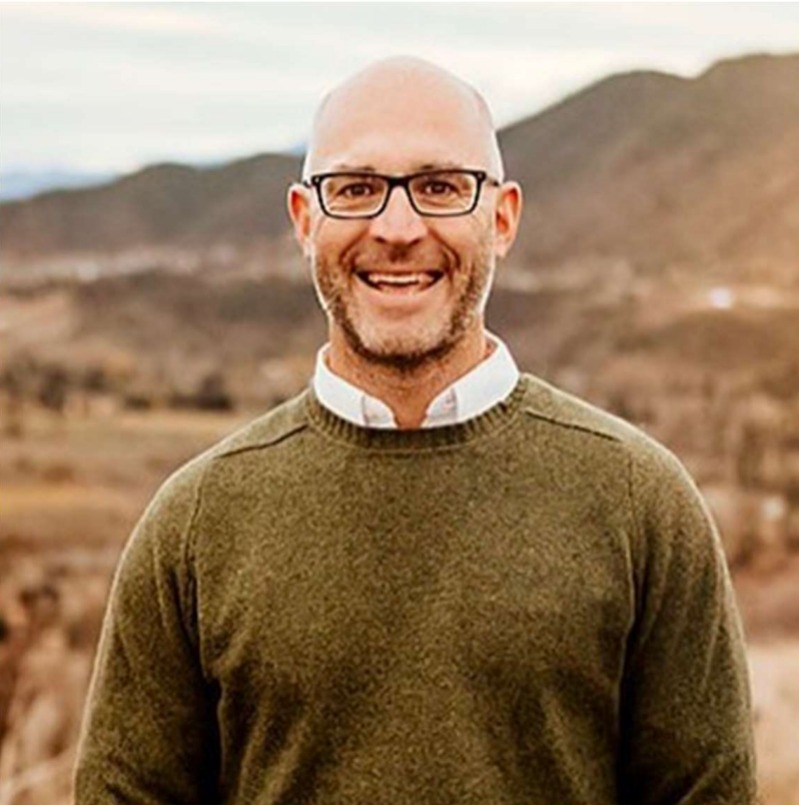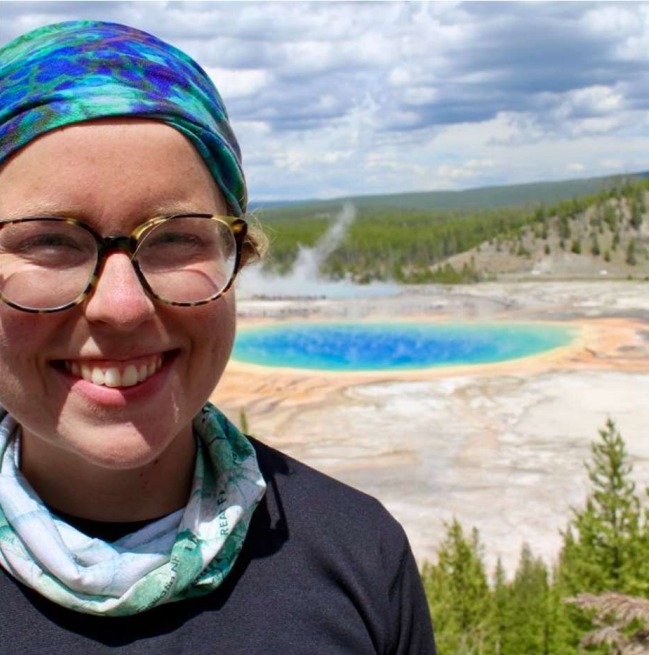Summit was hosted at American University in Washington, DC on June 15-17, 2023.The RCN-UBE Summit convened existing PIs, steering committee members, science practitioners, and educators. The goal was to explore the role of coordination networks on best practices in undergraduate science education; to share best practices from existing RCNs; and to explore the impact of RCN-UBEs on broadening participation among minority undergraduates and those historically excluded from the sciences. We had fun meeting and working with everyone! Thank you to all who came! |

- Information about how to join the community and how to get help.
- How to share your RCN introduction.
- If you have questions, please email Dr. Gillian Bowser (gbowser@colostate.edu), or Dr. Philip Halliwell (Philip.Halliwell@colostate.edu), Dr. Sarah Whipple, or Alia Smith.
- Check out the list of RCN-UBE projects.
General Description of the conference
Information about the 2023 RCN-UBE Summit. Broadening participation by increasing student diversity in academic science disciplines has shown limited progress over the last decade and recruitment and retention issues persist for those students historically underrepresented in science. In the RCN-UBE (Research Coordination Networks in Undergraduate Biology Education) program, over 50 collaborative networks of academic institutions work together to address undergraduate biology education and broadening participation in the sciences. The conference, RCN-UBE Summit: Creating New Landscapes in Undergraduate Biology Education, will bring together RCN-UBE network participants to explore how networks of institutions can work together to change the demographics of the science disciplines. The conference will convene science practitioners, educators, and university faculty to evaluate the role of networks in shifting the science enterprise towards a more inclusive approach by reaching across multiple institutional types from minority serving institutions, Historically Black Colleges and Universities, and larger research institutions.
In the Summit, RCN-UBE network participants will present best practices and engage in facilitated workshop sessions to discuss topics in undergraduate education and broadening participation in the sciences. Each workshop session will also explore opportunities for new networks, especially those led by smaller and minority institutions, to form within a supportive environment of existing networks. Case studies and other materials will be presented to generate ideas and potential solutions to engage diverse students as participants in the production of scientific knowledge, and to develop innovative ways to increase the use of this knowledge in formal and informal science educational settings. This project is being jointly funded by the Directorate for Biological Sciences, Division of Biological Infrastructure, and the Directorate for Education and Human Resources, Division of Undergraduate Education as part of their efforts to address the challenges posed in Vision and Change in Undergraduate Biology Education: A Call to Action (http://visionandchange/finalreport/).
Planning Committee Info

Gillian Bowser, PhD
Gillian Bowser is an Associate Professor in the Ecosystem Science and Sustainability Department at Colorado State University, Colorado, USA. Bowser earned her B.S. from Northwestern University, her M.S. from the University of Vermont, and her Ph.D. in Biology at the University of Missouri-St. Louis. Bowser focuses on ecological indicators of climate change, such as pollinator insects, and linkages between changing ecological conditions, local community livelihoods and climate. She places special emphasis on sustainability, citizen-scientist engagement, and encouraging more students from underrepresented backgrounds to study science. Her current interdisciplinary work looks at biodiversity indicators in high elevations around the world. Bowser has worked as a wildlife biologist and ecologist for the U.S. National Park Service in Yellowstone, Grand Teton, Joshua Tree and Wrangell St. Elias, and was an AAAS Science and Diplomacy Fellow in 2011. She serves on the board for the Rocky Mountain Sustainability and Science Network (formerly sponsored as a RCN-UBE), and participated in the U.N. Framework on Climate Change Convention and U.N. Global Environmental Outlook. Outside of work, Gillian loves to combine her passions for art and science through drawing and insect photography. She loves to cook and bake, listen to opera music, and hike with her two dogs.
Her recent RCN projects include #2019049 RCN-UBE: Youth Environmental Alliance in Higher Education; #2233205 RCN-UBE Summit: A New Landscape for Undergraduate Biology Education; #1624191 RCN-UBE: 3dNaturalists- BioBlitzes, Citizen Science, and Undergraduate Learning; #1730756 RCN-UBE: Building Capacity for Evidence-Based Undergraduate Field Experiences. She was also a participant in the 2016 RCN-UBE Summit.
Philip Halliwell, PhD
philip.halliwell@colostate.edu
Philip Halliwell is a Research Scientist in the Natural Resource Ecology Laboratory and an Affiliate Faculty in the Ecosystem Science and Sustainability Department at Colorado State University, Colorado, USA. He also teaches as an Environmental Science professor at Colorado Mountain College in Glenwood Springs, CO. Halliwell earned his B.S. and M.S. from Penn State University, and his Ph.D. in Sustainability Education at Prescott College. His research interests include citizen science, social, ecology, place-based education in National Parks, and connecting underrepresented students in the sciences. He serves on the board for the Rocky Mountain Sustainability and Science Network (formerly sponsored as a RCN-UBE). Outside of work, you can find Phil skiing, hiking, playing hockey, or enjoying time with his wife and five kids.
His recent RCN projects include #2233205 RCN-UBE Summit: A New Landscape for Undergraduate Biology Education and #1624191 RCN-UBE: 3dNaturalists- BioBlitzes, Citizen Science, and Undergraduate Learning.

Brandy Wilson
Facilitator
Brandy Wilson is the Sustainability Director for the J.R. Simplot Company, a vertically integrated, global agribusiness firm. She works with Simplot’s customers and business groups, as well as industry stakeholders and NGOs, to develop and implement a company-wide, leading sustainability program. Since Simplot does everything from phosphate mining and fertilizer manufacturing, to crop advising services, to farming, ranching, and food processing (Simplot is best known for its delicious French fries), she works with partners across the entire agricultural supply chain, from growers through customers, to define and measure sustainability outcomes.
Prior to joining Simplot, Brandy enjoyed a 20-year career at CH2M (now Jacobs Engineering), serving as their Global Sustainability Director. She split her time between developing and implementing CH2M’s award-winning sustainability platform, and helping her clients develop sustainability strategies and programs that delivered positive outcomes and business value. She led CH2M’s collaboration with The Nature Conservancy to advance green infrastructure solutions that protect communities and assets while enhancing natural resources. Outside of work, you can find Brandy (literally) outside: hiking, camping, cross-country skiing, and of course, gardening.
Sarah Whipple, PhD
Graduate Student Support
Sarah.Whipple@rams.colostate.edu
Sarah Whipple is a recent graduate from the Ecology Program and within the Ecosystem Science and Sustainability Department at Colorado State University, Colorado, USA. Her dissertation, funded by #1624191 RCN-UBE: 3dNaturalists- BioBlitzes, Citizen Science, and Undergraduate Learning, looked at bumble bee and butterfly species diversity within Yellowstone and Grand Teton National Parks. She used mixed datasets, including natural history collections, citizen science, satellite phenology data, and field collected specimens, to answer questions regarding climate change and biodiversity loss. She serves as the student board member representative for the Rocky Mountain Sustainability and Science Network (formerly sponsored as a RCN-UBE). Outside of work, you can find Sarah running (a lot) with her black lab Otis, practicing yoga, backpacking, and taking photographs of insects. While she won’t be joining the group in DC as she transitions to a postdoc position, Sarah is happy to answer any questions or concerns you may have prior to the weekend activities.

Alia Smith
Alia Smith is a second-year master’s candidate in the Ecosystem Science and Sustainability Department at Colorado State University, Colorado, USA. Her thesis is a comparison between the bumble bee observations made by research scientists and citizen scientists on iNaturalist in Grand Teton and Yellowstone National Parks. It compares the quality and quantity of the observations of both groups to understand what is being contributed by each. Outside of work, you can find Alia reading, shooting film photography, or paddle boarding on the nearest lake.
Amanda (Mandy) Simcox
NSF Program Officer Support
Amanda (Mandy) Simcox is a Program Director in the Division of Biological Infrastructure (DBI) of the National Science Foundation. Prior to her role at the NSF, she was a professor at the Ohio State University in the Molecular Genetics Department.

Mary Crowe
Mary Crowe is a Program Director in the Division of Undergraduate Education (DUE) of the National Science Foundation. Prior to her role at the NSF, she was a professor at Florida Southern College in the Biology Department.
Joel Abraham
Joel Abraham is a Program Director in the Division of Biological Infrastructure (DBI) of the National Science Foundation. Prior to his role at the NSF, he was a professor at California State University - Fullerton in the Biological Sciences Department.
This Summit is supported by the National Science Foundation  RCN-UBE #2233205.
RCN-UBE #2233205.



